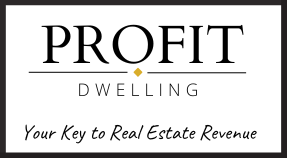A Comprehensive Guide to Mortgage Closing
Closing a mortgage is a pivotal step in the journey of homeownership. It marks the final stage where all the necessary paperwork is completed, funds are transferred, and the property officially becomes yours. However, the closing process can often feel overwhelming and complex, with numerous steps and parties involved. That's why understanding the way to close a mortgage is crucial to ensure a smooth and successful experience.
Whether you are a first-time homebuyer or looking to refinance, having a clear understanding of the closing process can empower you to make informed decisions and navigate the journey with confidence. We will explore the various stages of closing, from the initial preparation to the final signing of loan documents. You will learn about the documentation required, the roles of different parties involved, the costs associated with closing, and potential challenges you may encounter along the way.

Decoding the Mortgage Closing Process
Closing a mortgage involves a series of steps that culminate in the final transfer of ownership. It's essential to have a clear understanding of the overall process to navigate through it smoothly. Let's delve into the key aspects of the closing process:
- The closing process begins with the borrower submitting a mortgage application to the lender. This includes providing financial information, documentation, and details about the property being purchased or refinanced. The article "Initial Application in the Mortgage Closing Process" provides a comprehensive overview of the crucial stage of the mortgage closing process known as the initial application.
- Once the application is submitted, the lender begins the loan processing phase. This involves verifying the borrower's financial information, conducting a credit check, and assessing the property's value through an appraisal.
- During the underwriting stage, the lender evaluates the borrower's creditworthiness and determines the loan's terms and conditions. This includes reviewing the borrower's income, assets, debt-to-income ratio, and credit history.
- If the underwriter approves the loan, the borrower receives a formal loan approval letter outlining the terms and conditions of the mortgage. This is a significant milestone in the closing process.
- The lender and the title company work together to prepare the necessary closing documents. These include the promissory note, deed of trust or mortgage, loan estimate, closing disclosure, and other relevant forms.
- Once the closing documents are ready, a closing date and location are scheduled. This is typically done at the office of a title company or an attorney.
- Before the closing, the borrower may have the opportunity to conduct a final walk-through of the property to ensure it is in the agreed-upon condition.
- On the closing day, the borrower and other parties involved, such as the lender, real estate agent, and title company representative, gather to complete the necessary paperwork and finalize the transaction. The borrower signs the loan documents, pays the closing costs, and receives the keys to the property.
- After all the documents are signed, the lender funds the loan, and the title company records the transaction with the appropriate government entity, officially transferring the property's ownership to the borrower.
It's important to note that the timeline for closing a mortgage can vary depending on several factors, such as the complexity of the loan, the responsiveness of all parties involved, and any contingencies or additional requirements.
The closing process can take 30 to 60 days to complete, and the final meeting may take place at the title company, insurance company, lender, or realtor's office. It is important to review all documents carefully and ensure that all fees and payments are distributed properly. Buyers should also avoid making any major changes to their financial situation, such as changing jobs or opening new credit accounts, during the closing process.
Discover the advantages and disadvantages of both fixed-rate and adjustable-rate mortgages in the article "The Pros and Cons of Fixed-Rate and Adjustable-Rate Mortgages".

Preparing for the Closing
Before the closing day arrives, there are essential steps you need to take to ensure a seamless and successful closing process. Let's explore the key aspects of preparing for the closing:
- The closing process requires various documents to verify your identity, income, assets, and financial history. These may include proof of income (such as pay stubs or tax returns), bank statements, identification (such as a driver's license or passport), proof of insurance, and any other documents specified by the lender. It's crucial to gather these documents in advance to avoid delays or complications during the closing process.
- Take the time to organize your financial information and have it readily accessible. This includes reviewing your bank statements, investment accounts, and any other financial records that may be relevant to the mortgage. Being organized will help you provide accurate information and respond promptly to any requests from the lender.
- It's essential to carefully review all the loan documents provided by the lender. This includes the loan estimate, closing disclosure, promissory note, deed of trust or mortgage, and any other agreements related to the mortgage. Pay close attention to the interest rate, loan term, payment schedule, closing costs, and any special conditions or contingencies. If you have any questions or concerns, don't hesitate to seek clarification from your lender or an attorney.
- Maintain open communication with your lender throughout the closing process. If there are any changes in your financial situation or if you have concerns about the process, inform your lender promptly. Clear and timely communication will help address any issues and ensure a smoother closing experience.
- Before the closing day, take the opportunity to review all the documents and information provided by the lender. Double-check the accuracy of your personal details, loan terms, and financial figures. This final review will help identify any errors or discrepancies that need to be addressed before the closing.
By preparing for the closing process in advance, organizing your documents, reviewing loan documents, and understanding the terms and conditions, you can contribute to a more efficient and successful closing experience.

The Closing Meeting
The closing meeting is a significant milestone in the mortgage process, where all parties involved come together to finalize the transaction. The closing meeting, also known as settlement, is the final step in the mortgage closing process where all parties involved in the transaction sign the necessary documents. Let's delve into what you can expect during the closing meeting:
- The closing meeting typically takes place at a predetermined location, such as the office of a closing agent, attorney, or title company. The key participants in the closing meeting may include the borrower, the seller (in some cases), the closing agent or attorney, and potentially a representative from the lending institution.
- A closing agent or attorney plays a vital role in facilitating the closing process. They act as a neutral third party responsible for overseeing the transaction and ensuring that all legal and financial requirements are met. The closing agent or attorney will guide you through the process, explain the documents, and answer any questions you may have.
- During the closing meeting, you will be required to sign various loan documents, including the mortgage note and the closing disclosure. The mortgage note is a legal agreement that outlines your promise to repay the loan, including the loan amount, interest rate, payment terms, and other terms and conditions. The closing disclosure provides a detailed breakdown of the loan terms, including the loan amount, interest rate, closing costs, and any additional fees. It is important to carefully review and understand these documents before signing them.
- The closing meeting is also when you will be expected to pay the closing costs associated with the mortgage. These costs may include loan origination fees, appraisal fees, title insurance, attorney fees, and prepaid expenses such as property taxes and homeowners insurance. The closing agent or attorney will provide you with a detailed breakdown of the closing costs and guide you through the payment process.
- As a security measure, you will need to provide identification documents during the closing meeting to verify your identity. This typically involves presenting a government-issued identification, such as a driver's license or passport.
- Once all the necessary documents have been signed and the closing costs have been paid, the transaction is considered finalized. The closing agent or attorney will ensure that all funds are distributed to the appropriate parties, such as the seller, the lender, and any other parties involved in the transaction.

What is a Closing Disclosure and when is it provided to the borrower
A Closing Disclosure is a document provided to the borrower by the lender before the closing of a mortgage loan. It is a standardized form that outlines the final details of the loan, including the loan terms, interest rate, monthly payments, closing costs, and any additional fees or charges. The Closing Disclosure is designed to provide borrowers with clear and transparent information about the financial aspects of the loan.
A Closing Disclosure is a five-page legal document that provides final details about the mortgage loan the borrower has selected. It includes the loan terms, projected monthly payments, and how much the borrower will pay in fees and other costs to get their mortgage (closing costs).
The Closing Disclosure must be provided to the borrower at least three business days before the closing date. This requirement is part of the Truth in Lending Act (TILA) and the Real Estate Settlement Procedures Act (RESPA), which aim to protect borrowers by ensuring they have adequate time to review the loan terms and costs before finalizing the mortgage. The three-day waiting period gives borrowers the opportunity to compare the Closing Disclosure with the Loan Estimate they received earlier in the loan process, ensuring there are no significant changes or surprises.
The Closing Disclosure is a final accounting of the dollars and cents for the borrower to review before they sign their final mortgage paperwork at the closing meeting.
By providing the Closing Disclosure in advance, borrowers have the chance to ask questions, seek clarifications, and make informed decisions about proceeding with the loan. It promotes transparency and helps borrowers understand the financial implications of their mortgage commitment.
You can read the article "How to Obtain Mortgage Pre-Approval with Bad Credit" to find out if it is possible to get a mortgage with a poor credit score.
What are The Consequences of Missing The Closing Date
Missing the closing date can have several consequences for both the buyer and the seller involved in a real estate transaction. Some potential consequences include:
- Failing to close on the agreed-upon date may be considered a breach of the purchase agreement or contract. This can have legal implications and may allow the non-defaulting party to pursue remedies such as financial damages or cancellation of the contract.
- A closing date listed in a sales contract is legally binding, and if the buyer is not ready to close by that date, the seller can cancel the sale.
- Once the closing date passes, the seller can choose to extend the closing deadline and charge the buyer a per diem, or daily rate, to cover the additional mortgage, tax, and insurance payments the seller still needs to make as a result of the postponed date.
- Interest Rate Lock Expiration. If the buyer has locked in an interest rate for their mortgage, missing the closing date may lead to the expiration of the rate lock. This can result in a higher interest rate, potentially increasing the borrower's monthly mortgage payments.
It is important for both buyers and sellers to communicate effectively, work closely with their real estate agents and lenders, and make every effort to meet the agreed-upon closing date. It is important for buyers to communicate with their lender and real estate agent to ensure that they are on track to meet the closing date. If there are any issues that may cause a delay, buyers should notify all parties involved as soon as possible to avoid any penalties or legal action
Closing Costs and Payment
Closing costs are an essential part of the mortgage closing process, encompassing various expenses associated with finalizing the home purchase. Closing costs encompass fees and expenses associated with the mortgage closing process. The typical range of closing costs can vary depending on factors such as the loan amount, property location, and specific lender requirements.
These costs typically range from 2% to 6% of the loan amount, depending on the state, loan type, and mortgage lender. For example, if you're buying a $250,000 home, you can expect to pay anywhere from $5,000 to $15,000 in closing costs.
Here are some common examples with specific amounts:
- Loan Origination Fees. These fees typically range from 0.5% to 1% of the loan amount. For example, on a $200,000 loan, the origination fees can be around $1,000 to $2,000.
- Appraisal Fees. The cost of an appraisal can range from $300 to $500. However, it may vary depending on the complexity of the property and location.
- Title Insurance. Title insurance costs can range from 0.5% to 1% of the purchase price. For instance, on a $300,000 property, title insurance costs can amount to $1,500 to $3,000.
- Attorney Fees. If an attorney is involved in the closing process, their fees can vary but typically range from $500 to $1,500.
- Survey Fees. The cost of a property survey can vary between $400 and $700, depending on the property size and complexity.
- Recording Fees. Recording fees generally range from $50 to $300, depending on the jurisdiction and the number of documents being recorded.
|
Closing Cost Item |
Amount ($) |
Percentage of Home Price |
|
Appraisal Fee |
$500 |
0.2% |
|
Loan Origination Fee |
$1,500 |
0.6% |
|
Credit Report Fee |
$50 |
0.02% |
|
Title Insurance |
$1,200 |
0.48% |
|
Homeowners Insurance |
$800 |
0.32% |
|
Inspection Fee |
$400 |
0.16% |
|
Attorney Fees |
$1,000 |
0.4% |
|
Recording Fees |
$200 |
0.08% |
|
Escrow Account |
$1,000 |
0.4% |
|
Total Closing Costs |
$6,650 |
2.66% |
The table provides a sample breakdown of common closing costs associated with a mortgage. Each cost item is listed along with the corresponding amount in dollars and the percentage it represents of the home price. These costs include fees for services such as the appraisal, loan origination, credit report, title insurance, homeowners insurance, inspection, attorney representation, recording, and escrow account. The total closing costs are calculated by summing up the individual amounts. It's important to note that the values in this table are for illustrative purposes only and may vary depending on factors such as location, loan type, and specific lender requirements. It's recommended to consult with your mortgage lender or financial advisor for accurate and up-to-date information on closing costs specific to your situation.

Closing costs are typically calculated as a percentage of the loan amount or the property's purchase price. While some closing costs are fixed, others can be negotiated or shop around for better rates. For example, you can compare fees from different service providers and potentially save on items like title insurance or attorney fees.
Three days before the closing date, the borrower will receive a Closing Disclosure, which lays out the final details of the home loan and the closing costs they have agreed to. The borrower should review this document carefully and reach out to their lender for clarification if they note any large variations from the costs provided in their loan estimate.
The payment of closing costs usually occurs at the closing meeting. You will be required to bring funds to cover these costs, which may include a combination of the down payment and additional funds required. As an example, if your total closing costs amount to $5,000 and your down payment is $20,000, you would need to bring a total of $25,000 to the closing.
There are four ways to pay for the mortgage closing costs: pay cash at closing, roll the costs into the loan, increase the interest rate, or a combination of these methods. The borrower will need to bring a cashier's check or wire transfer to pay for outstanding escrow items or closing costs that aren't rolled into the loan.
By having specific amounts in mind and understanding the breakdown of closing costs, you can better prepare yourself financially for the closing process.
When lenders offer "no cost" loans or "low cost" loans, they are either rolling the costs into the loan and/or rolling the costs into the interest rate.
Finalizing the Mortgage
After the closing, the signed loan documents, including the mortgage note and other supporting paperwork, will be submitted to the lender for final review and approval. The lender will ensure that all documents are in order and meet their requirements.
Upon approval of the loan documents, the lender will initiate the funding process. This involves transferring the loan funds to the appropriate parties, such as the seller and the closing agent. The lender will coordinate with the title company or closing agent to ensure a smooth and timely transfer of funds.
It is essential to conduct a final walkthrough of the property before the closing. This allows the buyer to verify that the property is in the expected condition and that any agreed-upon repairs or modifications have been completed satisfactorily. During the walkthrough, it is advisable to check the functionality of appliances, plumbing, and electrical systems, as well as inspect for any new damages or issues that may have arisen since the last visit.
The post-closing process aims to finalize the mortgage and ensure that all necessary steps have been taken to complete the home purchase.
Avoiding Common Errors in the Mortgage Closing Process
While the mortgage closing process is designed to be thorough and efficient, errors can occasionally occur that may cause delays or complications. Being aware of these potential errors and taking proactive measures to avoid them can help ensure a smoother experience. Here are some common errors that can arise during the mortgage closing process and tips on how to avoid them:
- Documentation Errors. One of the most common errors is incorrect or incomplete documentation. Ensure that all required documents are accurately completed, signed, and dated. Review them carefully to verify accuracy, including personal information, loan terms, and financial details. Work closely with your lender and other parties involved to ensure all necessary paperwork is in order.
- Credit and Financial Mistakes. Your credit and financial information play a crucial role in the mortgage approval process. Any changes to your credit or financial situation before closing, such as new debts or missed payments, can impact your eligibility. Avoid making significant financial moves or incurring new debts during this time. Double-check your credit report for any inaccuracies and address them promptly.
- Closing Cost Errors. Closing costs can vary depending on factors such as the loan amount, property value, and location. Review the Loan Estimate and Closing Disclosure documents carefully to understand the breakdown of closing costs. Compare the final costs with the initial estimates provided by your lender. If you notice any discrepancies or unexpected charges, seek clarification from your lender before proceeding.
- Title Issues. Title issues can arise, including liens, undisclosed property encumbrances, or ownership disputes. Conduct a thorough title search and obtain title insurance to protect yourself against any potential title-related problems. Work with a reputable title company or attorney who can guide you through the process and address any issues that may arise.
- Effective communication between all parties involved is essential for a successful closing. Maintain open lines of communication with your lender, real estate agent, attorney, and other professionals. Respond promptly to any requests for information or documentation. Keeping everyone informed and addressing any concerns or questions in a timely manner can help avoid misunderstandings and delays.
- Closing Date Delays. Delays in the closing date can occur due to various factors, such as incomplete documentation, appraisal issues, or last-minute complications. Stay proactive by promptly providing all requested documents and addressing any concerns raised by your lender. Regularly communicate with all parties involved to ensure everyone is on track and working towards meeting the agreed-upon closing date.
By being vigilant and proactive throughout the mortgage closing process, you can help minimize the risk of errors and ensure a smoother and more efficient experience. Work closely with your lender and other professionals involved, ask questions when needed, and stay organized and prepared. Remember, attention to detail and clear communication are key to a successful closing.
In conclusion, the mortgage closing process is a critical step towards homeownership. It involves various parties, paperwork, and financial considerations. By understanding the process, preparing adequately, and being aware of potential challenges, you can navigate the closing process with confidence. Remember to review all documents carefully, communicate effectively with all involved parties, and address any issues promptly. Closing a mortgage requires attention to detail and careful planning, but with the right approach, you can successfully finalize your mortgage and embark on the exciting journey of homeownership.
Sincerely,
William Anderson
Profit Dwelling.com
In preparing the study, the following sites were used as sources:
-
- "What Is A Closing Disclosure?" by Quicken Loans
- "What is a mortgage 'closing?' What happens at the closing?" by Consumer Financial Protection Bureau
- "Mortgage Closing Process: 10 Steps to Expect" by LendingTree
- "What To Expect At A Real Estate Closing" by Bankrate
To access comprehensive information and valuable insights on obtaining a mortgage, we recommend delving into the in-depth content of our "Mortgage loan" section.

Comments powered by CComment